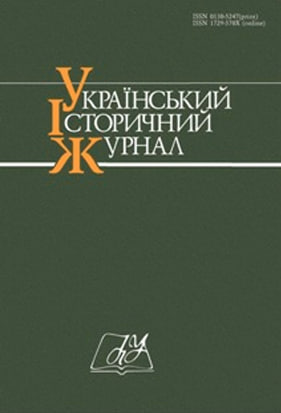P.Kulish’s Homestead Philosophy: Near the Sources of Ukrainian Agrarianism
DOI:
https://doi.org/10.15407/uhj2020.05.064Keywords:
homestead philosophy, Kulish, ideology of Ukrainian agrarianism, homestead, city, peasantryAbstract
The objectives of the study are to reveal the essence of the ideology of Central and Eastern European agrarianism, the analysis of P.Kulish’s homestead philosophy in the context of the formation of the ideology of Ukrainian agrarianism as an option of Central and Eastern European one, to identify the impact of P.Kulish’s homestead philosophy on the development of the ideology of Ukrainian agrarianism in the beginning of the 20th century.
The methodology of the research is based on the principles of comparative-historical and interdisciplinary analysis, socio-cultural approach.
The scientific novelty is to substantiate the thesis that P.Kulish’s philosophy, agrarianist in its content was not only at the origins of the ideology of Ukrainian agrarianism, it is in line with the ideas of Central and Eastern European agrarianism, it became the basis for the formation of a semantic foundation of the Ukrainian agrarianism.
Conclusions. The homestead philosophy is through dominated by the ideas systematically stated, purely agrarianist in content and motives. Among them we distinguish the following: the city and the village – two different worlds, cultures; the city and the village are antagonists, since the city is superficially related to the village; the village is primary, natural, stable; the city is secondary, alluvium, changeable; the village is highly moral, naturally wise, with practical mind and biblical character; the city is arrogant, scholastically enlightened by theory. Such meanings of P.Kulish’s homestead philosophy are in line with the Ukrainian agrarianist discourse of the beginning of 20th century. They found their further development in the works of M.Hrushevskyi, V.Lypynskyi and other civil and political figures and political parties of Ukraine. The basic principles of P.Kulish’s homestead philosophy are in line with Central and Eastern European agrarianism, as they relate to the distinctiveness of peasantry, its outlook and culture. The peasantry appears as the bearer of high moral virtues, the embodiment of traditional values. Due to this, the peasantry dominates the city. For P.Kulish, peasant existence is different from the urban path of development.


